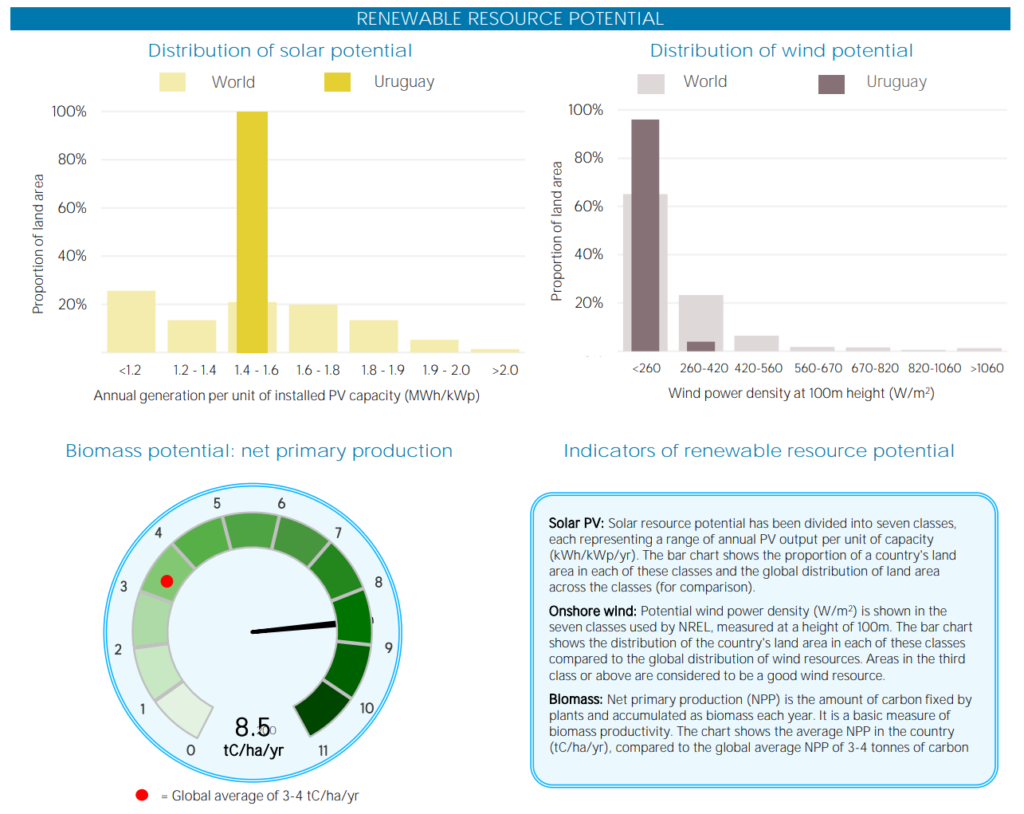While Brazil takes the most credit for renewables in Latin America, Uruguay is an underestimated country, since it’s almost independent of fossil fuels. In 2008, Ramón Méndez, an Uruguayan physicist, created an energy policy for the country’s 2030 future. Nowadays, 40% of Uruguay’s energy comes from eolic energy, and the other 58% comes from hydroelectric, biomass, and solar sources.
By 2017, Uruguay had installed a 1,479MW capacity for the Eolic sector, 1,538MW for hydroelectric, and 238MW for solar PV, in addition to significant biomass and biofuel capacities. This represented the creation of up to 316 full-time jobs per every 100MW. In fact, jobs created by the installations add up to 5,512. In addition, the public sector created over 3,000 jobs related to the industry.
The jobs generated by the industry vary across sectors. As in most countries, solar PV has proven to create installation jobs, primarily. However, a significant number of them are related to startups. Across different types of renewables, construction and installation employment make up the most job creation. With the expansion of the grid, maintenance, operation, and management employment grow. Due to the current level of expansion, these positions are probably the most in-demand right now.
Uruguay's Renewable Capacity

Uruguay’s underestimation could be attributed precisely to the fact that its renewable grid has been very well developed. According to IRENA’s statistical profile, Uruguay has the potential to generate 80% more energy than the world per unit of installed PV capacity. Onshore wind generation and Biomass potential are also higher than the world average, by about 20% and 50% respectively.
It seems that Uruguay’s next challenge will be a regional one, and renewables in Latin America have a big competition. Uruguay must find a way to export energy to its regional neighbors. This could be a big challenge since it’s up against Brazil, Argentina, Panama, and Mexico. Latin American countries are beginning to expand their renewable generation capacity and are receiving heavy investments, unlike Uruguay. Another great way to take advantage of their current position is to export their know-how. Talent that knows how to navigate public policy and renewables could be greatly appreciated in countries like Germany.



